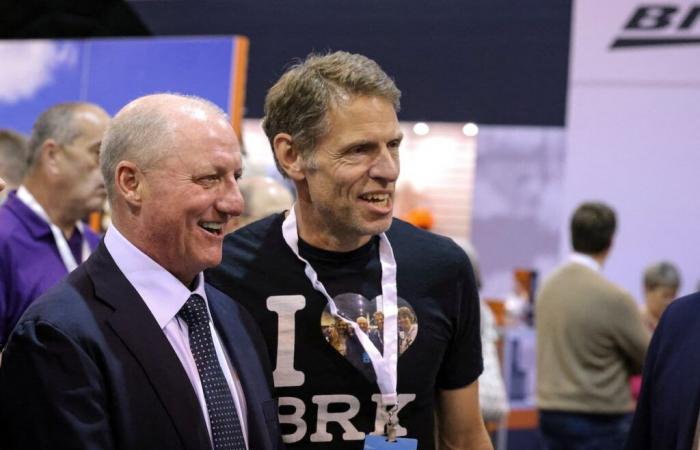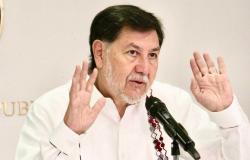
Being the successor of a legend is not an easy task. The 62 -year -old Canadian executive Greg Abel is in charge of taking the witness as first executive at Berkshire Hathaway at the end of the year, when Warren Buffett retires. Abel, who is currently the vice president of the group in charge of all businesses except those of insurance, has enormous challenges before him. The most difficult, almost impossible, will be to emulate the profitability achieved by Buffett in its 60s at the head of the company, 20% per year. The most realistic bar will be at least to beat the market. Along with that, Abel will inherit a huge liquidity bag to invest and to do so, in addition, maintaining the culture of Berkshire Hathaway and the investment philosophy of Warren Buffett.
The mythical investor has been deliberately ambiguous about his future role. In principle, he has not announced that he will leave the position of president, now without executive functions, for which the designated successor is his son Howard. Nor is it clear if next year the Oracle of Omaha will ask again the shareholders’ questions, in that case as vice president. Buffett is 94 years old and any forecast can be conditioned by the facts.
The businessman and investor still has a few months ahead as the CEO of the Company. In the 60 years he has been at the forefront, the revaluation of Berkshire Hathaway shares, counting this year’s increase, has been almost 6,600,000%. A thousand dollars invested in the company in early 1965 would now be 66 million dollars. Profitability has been 20% per year, practically double that of the S&P 500 index, the most representative of the US stock market. During those six decades, Buffett has repurchased Berkshire Hathaway actions frequently (a compensation for the shareholder), but has only distributed dividend once, in 1967, which recently the investor says he remembers as “a bad nightmare.” He believes that reinvesting benefits is the best way to generate additional wealth.
That bar is practically impossible to overcome by Greg Abel. In the profitability accumulated by Berkshire Hathaway, the exponential growth of the first stage weighs. Between 2015 and 2024, however, not even Buffett himself has been able to overcome the market. The Oracle of Omaha has been recognizing in recent years that, with the dimension that the conglomerate has reached, it is very difficult to find investments that make the difference and make the needle of profitability move significantly. If measuring the most successful investor in history is an impossible task, beating the market and avoiding scares to shareholders are required objectives for Abel.
Warren Buffett’s successor will inherit an enormous shot power. Berkshire Hathaway has accumulated a record position of 347,771 million dollars. After 10 consecutive quarters of net sales in the stock market, it will be necessary to see if that figure increases or reduces from here to the end of the year, when the relay is effective, but it will remain enormous.
Abel has a very successful experience in negotiating acquisitions and directing companies, but not in selecting the financial investment portfolio, that Berkshire Hathaway concentrates in more than two thirds in five companies (Apple, American Express, Coca-Cola, Bank of America and Chevron). To succeed with these investments can generate such important or greater benefits than the management of the approximately 180 conglomerate companies.
Although not everything has been succeed, Berkshire is quoted with a cousin for having Buffett in front and the market confidence in which he will know where to invest without losing patience. It is enough that you take positions in a company so that your quotation is triggered (which, time, makes it difficult to accumulate very large participations). Although Abel will have a team of advisors signed with buffett, he still has to demonstrate his investment smell.
Buffett’s successor has assured that he will maintain the culture of Berkshire Hathaway. On Saturday’s board, before the surprise announcement of the current CEO, Abel, as designated successor, had already committed to defending the legacy and philosophy of Berkshire Hathaway. “We will keep Berkshire’s reputation and our company’s reputation, and I see that in investment or how we operate things in each of our businesses. That will always be a priority, and something that we will ensure that it is on the front line of our minds,” he said. “It’s really about investment philosophy and how Warren and the team have assigned capital for the past 60 years. It will not really change,” he added.
In addition to acquisitions and investments, Abel will have to direct a huge conglomerate that had a total of 392,396 employees at the end of 2024. It comprises about 180 operational companies that generate annual income of almost 400,000 million dollars. In addition to insurance businesses, the group has railways, private aviation, electricity supply, gas stations, car dealers, construction companies, chemical manufacturers, real estate agencies, jewelry, toys, ice cream, clothes, footwear and other consumption products. Among their brands are Geico, Brooks, Duracell, Dairy Queen, Fruit of the Loom, Helzberg Diamonds and See’s Candies.
Despite his immense task, Abel hopes to continue taking time to be school coach of his children in ice hockey, his favorite sport, as a good Canadian.





